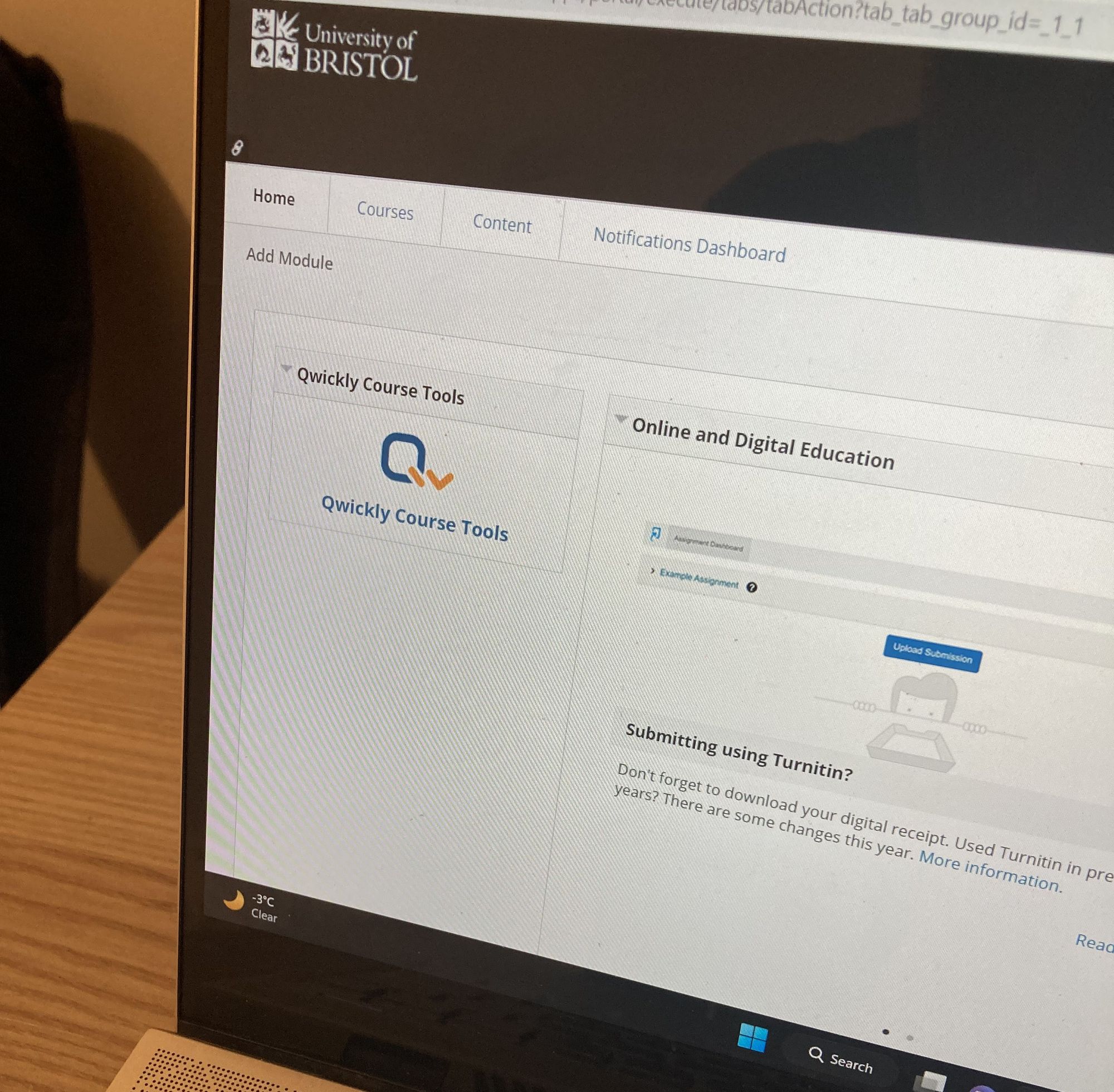By Conor MacDonald, Second Year, Philosophy and Economics
The last thing on a fresher’s mind when coming to Bristol will be learning how to use the University’s virtual learning environment. They’re likely expecting an easy, up to date experience akin to other services they’ve used, like Microsoft Teams or Google Classroom. Unfortunately they will soon be thrown into the deep end with Blackboard.
Slow, clunky and difficult - these are three ways most students would describe Blackboard. The service was originally pioneered in 1997 and some may argue it has not been updated since then. At first glance it seems manageable - there are likely many irrelevant announcements on the homepage, but your modules will be clearly displayed. Scrolling down a bit will reveal the “To-Do” section. For my whole time here it has suggested I have zero tasks to complete. If only that were the case.
Many students on joint-honours and those taking optional modules soon realise that the module pages are completely unstandardised. Where it may be easy to find assessment information for one module, for another it will be impossible. This will certainly cause frustration when your coursework is due and you still can’t find the cover sheet.
Some have been lucky to not use Blackboard. Until this year, Chemistry students were using DLM as their virtual learning environment (VLE). Eli Chalwin, a second year Chemistry student, said that ‘Blackboard is less intuitive to use than DLM, (…) and is more difficult to navigate’. On the impact of Blackboard on their teaching, Chalwin commented that it has ‘negatively impacted (their) learning experience’, further calling it a ‘clear step back in quality’.

With all of these problems then, why hasn’t anything been done? Every summer, the university claims to update Blackboard with the latest features. Whilst it offers what other tools can (video conferencing, polls, file sharing), it is always subpar. What can be done then to improve Blackboard?
The Bare Minimum
If anything needs to be done to Blackboard it must be an improvement in its visual design. Whilst this won’t fix slowness or solve the maze of finding files, it will still improve the service. Presently Blackboard is filled with sections containing what many may say is unnecessary information. Though students can customise their homepage, this creates a paradox of choice due to the sheer amount of customisability. Perhaps the developers could take a leaf from Apple’s book, whose software design is characterised by simplicity. Stripping Blackboard down to show only the essentials would be a place to start.
Adapt features from its competitors
Many students have experience of Microsoft Teams, Google Classroom, and other VLEs, so adapting features from them would offer some familiarity to them. These are also leading-class services, so adding features from the would certainly raise Blackboard’s profile. All of this unfortunately goes back to the point above, which is that Blackboard already has many of these features, yet they are clearly subpar. Adding more but of a worse quality will not fix it then. The brings us onto the nuclear option.
Get rid of it
Whilst a strong view, getting rid of Blackboard and starting from scratch could have its merits. In fact, the university would not be starting from scratch - it already uses Microsoft Teams. The integration between Outlook e-mails, calendars, and OneDrive which we all already have would be synergised if our virtual learning environment switched to Teams. My personal experience of using Teams makes Blackboard pale in comparison (but that may just be because a unicorn appears when you submit an assignment in Teams). Microsoft also offers great APIs for Teams to be able to work seamlessly with other services like Zoom, and it goes without saying that working in Word, Excel, or PowerPoint will be much easier.
Whether one of the three options outlined above is implemented is reliant on the students’ voices being heard. If students truly want Blackboard to change, they need to call for it. This means contacting your lecturers, tutors and Bristol’s Digital Education Office to raise awareness. Let’s hope that Blackboard soon becomes the innovative service it promised to be.
Featured image: Unsplash / Christin Hume
What do you think about Blackboard?









